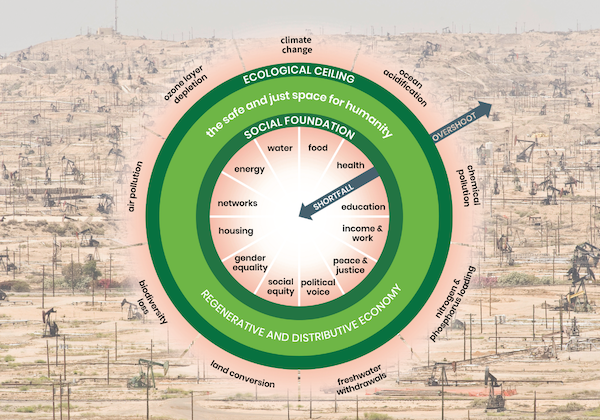Tackling climate change

If a technology contributes to climate change, should we be shy about dis-inventing it?
The inspiration for posing this question was taken from a book that was published in 1872 called Erewhon, by Samuel Butler, an Englishman who spent time in New Zealand as a sheep farmer. One of the early examples of science fiction, this novel explores artificial intelligence and what society might be like if machines were outlawed due to their dangerousness.
Pretty remarkable that at that time people were already considering machine consciousness and the ramifications that might have on humanity. Back then the industrial revolution had made its impact and - much like in our current society - when a new piece of technology is released into the world, with all of it’s positive effects we can’t help but wonder; have we made a mistake bringing this to the world? Will it do more harm than good?
TOUGH CROWD
Modern transport has made it possible for humans to travel anywhere, but in its wake has left us with about one fifth of the world's damaging carbon emissions. Cryptocurrency such as Bitcoin is incredibly energy intensive and has the potential to produce enough emissions to raise global temperatures. Advances in software force upgrades in hardware which add to our growing global e-waste problem.
But when posed to the roundtable participants that a plausible response to the climate crisis was to dis-invent some of these technologies? Definite pushback. Tough crowd.
The fact is that we’re human and we like things to be easy. Multiple studies have shown that as a species we’re hard-wired to take the path of least resistance, and so once we’re introduced to a technology that makes life easier - it’s hard, if not impossible, to eradicate it from our minds and our collective knowledge. We don’t want to let go.
Instead of a complete removal of the protagonist tech, can we instead suppress or mitigate the problem, and focus on reinventing or steering technology in a new direction?
Social media, for example, is here to stay in some form or other. But if we deconstructed Facebook and it’s underlying programming then that would make space for new knowledge in the programming of a new type of social media. Perhaps that's what Jimmy Wales is doing with WT Social - the news-focussed, ad-free alternative to Facebook, but even that platform hasn’t been able to hit a million users in the two years since it’s been live.
Do humans simply lack the willpower to collectively make the tough choice, even when it’s the right one?
TOP DOWN
If humanity can’t be trusted to take away something even when it’s not doing us, or the planet, any good - should we rely on the public and private sector decision makers to make the healthy choice the only choice?
If technology companies start to integrate human and environmental outcomes into their business models, rather than just be driven by profit maximisation, then we may start to see positive changes.
Kate Raworth’s ‘Doughnut Economics’ is a brilliant model to introduce here - describing how humanity should operate within both planetary boundaries and the complementary concept of social boundaries. The social layer includes complex issues and systems such as politics, justice, education, energy, housing - things which require a level of regulation or taxation and there was a lot of discussion about carrots and sticks. Should tax be a tool for disinventing bad tech?
However in the case of Bitcoin their intent is to sit outside of the system of regulation, and increasingly tech companies have the means to be “territory-free.” When regulation doesn’t move as fast as innovation, these loopholes can be exploited. It was suggested by the table that the Government could work in agile… which sounds absurd based on what we thought we knew. But as Kate Raworth noted, and we have all experienced in the last 18 months, the pandemic has shown us just how fast policy change can happen. Overnight.
TAKE RESPONSIBILITY
The last five years have seen environmental and social issues rise to the forefront of our collective consciousness, reaching a crescendo in 2020. While in global lockdowns, we saw the wondrous effects of the “anthropause”, the best and worst of people’s tolerance, eyes glued to screens witnessing suffering and resilience.
The problems are evident, and their roots are generations old. So it takes a bit of looking around at who is responsible for creating the solutions? For making the sacrifice, or the change? Who makes the decisions about what technologies we disinvent or reinvent, or try to steer?
Short of reinventing capitalism, we aren’t going to be able to put everything on the government to determine the direction of technology. A lot of expertise lies within the individuals inside technology companies, and tagged to those roles should be a commitment to accountability for what is created, and a risk assessment against measures that go beyond financial returns.
“Primum non nocere” is a Latin phrase that means "first, do no harm", widely attributed to Hippocrates.
This Medium article lays out the very idea where your brain may have ended up, as mine did; the tech world needs a version of the Hippocratic Oath of its own.
This article first appeared in ‘Connecting for a Better Future: a collection of essays’ in response to the RUSH x AUT Techweek Roundtable Discussions published in September 2021. Read the full whitepaper here.




